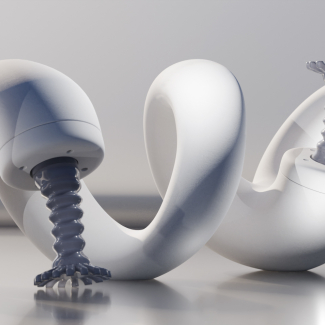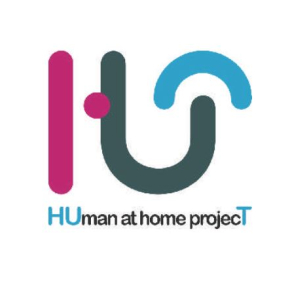
Towards an authentically human intelligent habitat
How can technology improve our housing conditions? How will we interact with “intelligent” housing? What information is it possible and desirable to share? What future legislative framework for these data is required? Organized by the CNRS, Montpellier University, and Paul Valéry Montpellier 3 University, the Human at Home (HUT ) project will look into these questions thanks to an “observatory apartment” that will be inhabited from October 2018. A member of the consortium, Montpellier Méditerranée Métropole is supporting this project, which is part of its Intelligent City approach. The HUT experiment is inaugurated in Montpelier on June 26, 2018.
In autumn 2018, two volunteer students will move into an “observatory apartment,” which will be studied by around sixty researchers. The questions that these legal experts, economists, electronics engineers, computer scientists, architects, and specialists of language, behavior, marketing, and health are asking can only be explored in a meaningful way by studying a permanent living space. While they will not set foot in the apartment, the researchers will exploit the precious data produced by the “HUTmates.”
In practical terms, pressure sensors in the floors and movement sensors in some rooms will be used to evaluate the occupants' movements and actions in their living space. This information may be of interest to both architects (to identify any areas that are avoided by the inhabitants, and to optimize layout) and health professionals (movements and postures can be indicators of wellbeing or discomfort). Sensors for pollution, for the opening of cupboards and windows, as well as for water and electricity use will make it possible, for instance, to imagine new services. Linguists and cognitive scientists will study the occupants' interactions with so-called “intelligent” systems. Research on the sensors themselves will aim, for example, to make them energy independent (by recovering energy from the environment, which is known as “energy harvesting”).
The research will also consider the management of data produced by connected objects, both in technical terms (how to organize “data lakes” ) and in ethical and legal terms. Moreover, an independent ethics committee has been set up to protect the privacy of the “HUTmates.” Its role is to examine all scientific projects and it may be called upon at any moment by the HUT occupants or researchers, or indeed launch proceedings at its own initiative.
To design this apartment, the consortium was offered a modular space at the Maison des sciences de l'Homme Sud. As this space can be arranged to create different rooms of a house, it will be possible to carry out day-long experiments in parallel with the long-term experiment in the observatory apartment.
The first residents will move out of the apartment in summer 2019. The house will then be “reformatted” according to the first results and new avenues of research, before again being offered for free to two other volunteer students.
This research project brings together, within a consortium, a local authority (Montpellier Méditerranée Métropole), seven companies (Delided, EDF, Nexity, Oceasoft, SensDigital, Synox, Weda), a dance association pursuing an artistic creation/research project (“Comme ça”), the Maison des sciences de l'Homme Sud, and twelve laboratories:
- Dynamiques du droit (CNRS/Montpellier University);
- Dynamique musculaire et métabolisme (Inra/Montpellier University);
- Epsylon (Montpellier University/Paul Valéry Montpellier 3 University);
- Espace-Dev (IRD/Montpellier University/University of the Antilles/University of French Guiana/ University of Reunion Island);
- EuroMov (Montpellier University);
- Institut d'électronique et des systèmes (CNRS/ Montpellier University);
- Laboratoire de génie informatique et d'ingénierie de production (IMT Mines d'Alès);
- Laboratoire d'informatique, de robotique et de microélectronique de Montpellier (CNRS/Montpellier University);
- Laboratoire innovation, formes, architectures, milieux (French Ministry of Culture);
- Montpellier recherche en économie (Montpellier University);
- Montpellier recherche en management (Montpellier University);
- Praxiling (CNRS/Paul Valéry Montpellier 3 University).
The project has received support from the Maison des sciences de l'Homme Sud as well as funding from the Mission pour l'interdisciplinarité at the CNRS and Montpellier Méditerranée Métropole.

Modular space within the Maison des sciences de l'Homme, showing a prototype installation. The floor is equiped with 16 pressure sensors per square meter, in order to monitor the occupants' movements.


